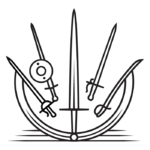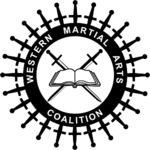|
|
You are not currently logged in. Are you accessing the unsecure (http) portal? Click here to switch to the secure portal. |
Difference between revisions of "Main Page"
| Line 35: | Line 35: | ||
|- | |- | ||
| style="color:#000; padding:2px 5px 5px;" | | | style="color:#000; padding:2px 5px 5px;" | | ||
| − | {{ | + | {{Infobox writer |
| − | | name = | + | | name = Nicolaüs Augsburger |
| − | | image = | + | | image = |
| − | | imagesize = | + | | imagesize = |
| caption = | | caption = | ||
| pseudonym = | | pseudonym = | ||
| birthname = | | birthname = | ||
| − | | birthdate = | + | | birthdate = |
| − | | birthplace = | + | | birthplace = |
| − | | deathdate = after | + | | deathdate = after 1489 |
| deathplace = | | deathplace = | ||
| − | | occupation = | + | | occupation = [[Fencing master]] |
| nationality = | | nationality = | ||
| ethnicity = | | ethnicity = | ||
| − | | citizenship = | + | | citizenship = Augsburg, Germany |
| education = | | education = | ||
| alma_mater = | | alma_mater = | ||
| − | | patron = | + | | patron = |
| spouse = | | spouse = | ||
| Line 59: | Line 59: | ||
| relatives = | | relatives = | ||
| period = | | period = | ||
| − | | movement = | + | | movement = |
| − | | influences = | + | | influences = [[Johannes Liechtenauer]] |
| − | | influenced = [[ | + | | influenced = [[Jörg Wilhalm Hutter]] |
| − | | genre = | + | | genre = [[Fencing manual]] |
| − | | language = | + | | language = [[Early New High German]] |
| notableworks = | | notableworks = | ||
| − | | archetype = | + | | archetype = Currently lost |
| − | | manuscript(s) = | + | | manuscript(s) = {{Collapsible list |
| − | {{Collapsible list | ||
| title = List of manuscripts | | title = List of manuscripts | ||
| − | | 1 = [[ | + | | 1 = [[Hutter/Sollinger Fechtbuch (Cod.I.6.2º.2)|Cod.I.6.2º.2]] (1523) |
| − | | 2 = [[ | + | | 2 = [[Jörg Wilhalm Hutters kunst zu Augspurg (Cgm 3711)|Cgm 3711]] (1523) |
| − | | | + | | 3 = [[Gregor Erhart Fechtbuch (MS E.1939.65.354)|MS E.1939.65.354]] (1533) |
| − | | | + | | 4 = [[Lienhart Sollinger Fechtbuch (Cgm 3712)|Cgm 3712]] (1556) |
| + | | 5 = [[Künnst zu fechten vonn dem Lienhartt Sollinger (Cod.Guelf.38.21 Aug.2º)|Cod.Guelf.38.21 Aug.2º]] (1588) | ||
}} | }} | ||
| principal manuscript(s)= | | principal manuscript(s)= | ||
| − | | first printed edition= | + | | first printed edition= |
| − | | wiktenauer compilation by=[[Michael | + | | wiktenauer compilation by=[[Michael Chidester]] |
| signature = | | signature = | ||
| − | |||
| below = | | below = | ||
}} | }} | ||
| − | ''' | + | '''Nicolaus''' was a 15th century German [[fencing master]], presumably from Augsburg. Nothing is known about this master outside of his treatise, but he seems to have been an initiate of the tradition of [[Johannes Liechtenauer]] (his treatise always appears coupled with a repetition of the grand master's [[Zettel|Record]]). On or around 2 July 1489, he seems to have completed a brief treatise on fencing with the [[longsword]] apparently based on a version of the [[pseudo-Peter von Danzig]] gloss of Liechtenauer's Record. The original treatise is lost, but it was repeated in all five surviving copies of [[Jörg Wilhalm Hutter]]'s longsword teachings. Of these, three are repeated anonymously and only the [[Gregor Erhart Fechtbuch (MS E.1939.65.354)|Glasgow version]] (1533) is properly attributed. |
| − | + | ([[Nicolaüs Augsburger|Read more]]...) | |
| − | |||
| − | |||
| − | |||
| − | |||
| − | |||
| − | |||
| − | |||
| − | ([[ | ||
|- | |- | ||
| − | | style="color:#000;" | <div style="margin:3px; border:1px solid #e1bd64; background:#faecc8; text-align:left; padding:0.2em 0.4em;">'''Recently Featured: [[Paulus Hector Mair]] – | + | | style="color:#000;" | <div style="margin:3px; border:1px solid #e1bd64; background:#faecc8; text-align:left; padding:0.2em 0.4em;">'''Recently Featured: [[Paulus Kal]] – [[Paulus Hector Mair]] – [[Vechtboek (MS BPL.3281)]] – [[Peter Falkner]]'''</div> |
|} | |} | ||
|} | |} | ||
Revision as of 17:25, 7 June 2014
Welcome to the Wiktenauer!The free library of Historical European Martial Arts books and manuscripts |
Without books no one can be a good teacher nor even a good student of this art. ~ Master Fiore de'i Liberi, ca. 1405 |
Wiktenauer is an ongoing collaboration among researchers and practitioners from across the Western martial arts community, seeking to collect all of the primary and secondary source literature that makes up the text of historical European martial arts research and to organize and present it in a scholarly but accessible format. The Wiktenauer project started in 2009, later receiving sponsorship from the Historical European Martial Arts Alliance, and is named for Johannes Liechtenauer, grand master of the oldest known longsword fencing style; his tradition was also the best-documented of the early Modern era, the subject of many dozens of manuscripts and books over a period of more than three centuries. Here are a few basic categories of pages that are being constructed:
- Master Pages host biographical information about each master, as well as the transcription and translation of his complete works. In cases of multiple copies of a master's work, the transcriptions are laid out side-by-side to facilitate the most accurate translation possible. To aid in interpretation, the writings will also be illustrated with images from the masters' work as available. A bibliography at the end of each page lists additional transcriptions, translations, and scans that are available in print. The exemplar for this category of pages is Fiore de'i Liberi. Ultimately, every master in all of the traditions of Western Martial Arts will have a dedicated page.
- Treatise Pages host all relevant data on a book or manuscript, including description, provenance, table of contents (with links to the appropriate master pages), gallery of page scans, and bibliography of additional print resources. The exemplar for manuscripts is the Goliath Fechtbuch, while the exemplar for printed books is Ergrundung Ritterlicher Kunst der Fechterey. Ultimately, every text in the corpus of Historical European Martial Arts literature will have a dedicated page.
- Technique Pages compile all of the relevant information from all of the relevant manuals on a particular technique, including transcriptions, translations, and images. There is also a section at the end of each page where groups may embed videos of their interpretations. The template for techniques is the Zornhaw. Ultimately, every technique mentioned in the manuals will have a dedicated page.
- Weapon Pages provide information about how a specific weapon form is described and used in the treatises, data on surviving artifacts, an overview of archaeological research pertinent to a given weapon, and a comprehensive index of the treatises and writers that discuss each weapon.
The wiki also features pages for HEMA groups, pages for HEMA events, general information pages, and almost other topic of interest to the HEMA community you can think of. If you'd like to pitch in, simply request an account and consult How can I help?
|
| ||||||||||||||||||||||||||||
Wiktenauer parent organizations
| Historical European Martial Arts (HEMA) Alliance
A US educational non-profit which provides a range of programs and services for its members and affiliate schools and clubs, as well as serving the wider HEMA community. |
| Western Martial Arts Coalition (WMAC)
A pan-American network of researchers and instructors dedicated to the study of traditional European, American, and related fighting arts and martial traditions. |
Historical European Martial Arts Federations
| Australia Western Martial Academies of Australia |
| Austria Österreichischer Fachverband für Historisches Fechten |
| Belgium Societas Belgarum Scientiae Nobilis |
| Brazil Associação Brasileira de Artes Marciais Históricas Européias |
| Czech Republic Česká asociace šermířů |
| France Fédération Française des Arts Martiaux Historiques Européens |
| Galicia (Spain) Asociación Galega de Esgrima Antiga |
| Germany Deutscher Dachverband Historischer Fechter |
| Greece Ελληνική Ομοσπονδία |
| Hungary Magyar Hosszúkardvívó Sportszövetség |
| Italy Vnione Arti Dimicatorie Italia |
| Netherlands H.E.M.A.-bond Nederland |
| Poland Polska Federacja Dawnych Europejksich Sztuk Walki |
| Portugal Federação Portuguesa de Esgrima Histórica |
| Slovenia Historical European Martial Arts Federation of Slovenia |
 |
Spain Asociación Española de Esgrima Antigua Federación Española de Esgrima Histórica |
| Sweden Svenska HEMA-förbundet |
| Switzerland Swiss Federation for Historical European Martial Arts |
| United Kingdom British Federation for Historical Swordplay |
Wiktenauer sponsors
Each year Wiktenauer holds a two-week fundraising drive to cover our server fees and fund new projects and acquisitions. The following are the organizations are official sponsors of the 2015 fundraiser; a full list of donors can be viewed on the Contributors page.
Top three 2015 donors
| Kron Martial Arts |
| xKdF Network |
| Schola Saint George |
| Associació Catalana d'Esgrima Antiga |
| Boston Armizare |
| Fechtschule Victoria |
| Longpoint: HEMA Tournaments & Workshops |
| Noble Science Academy |
| Ottawa Swordplay |
| Purpleheart Armoury |
| The Rhode Island Fencing Academy and Club |
| School of European Swordsmanship |
| Sword to Sword - Kunst des Fechtens |
| Système d'Armes - New Orleans |
| Tattershall School of Defense |
































